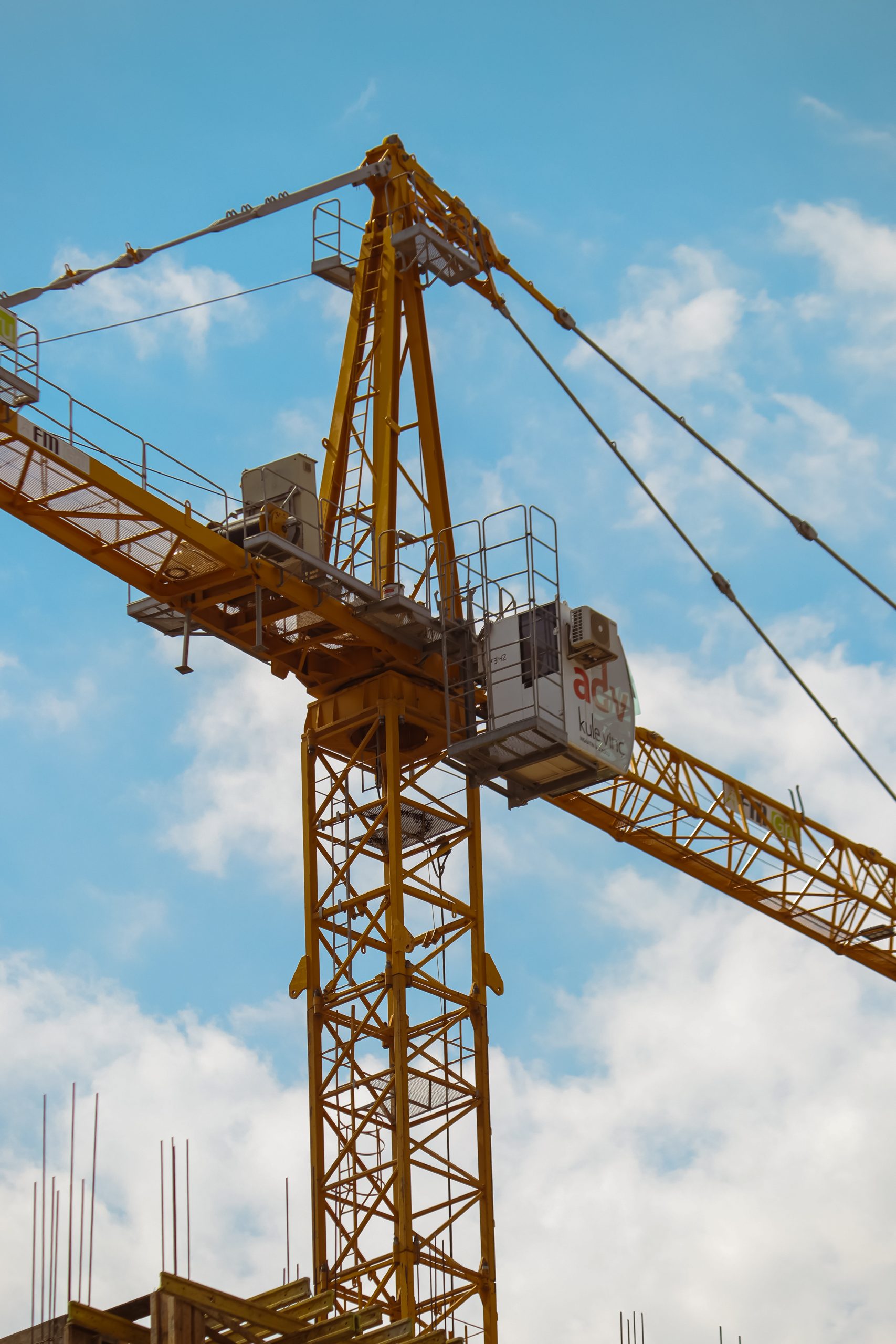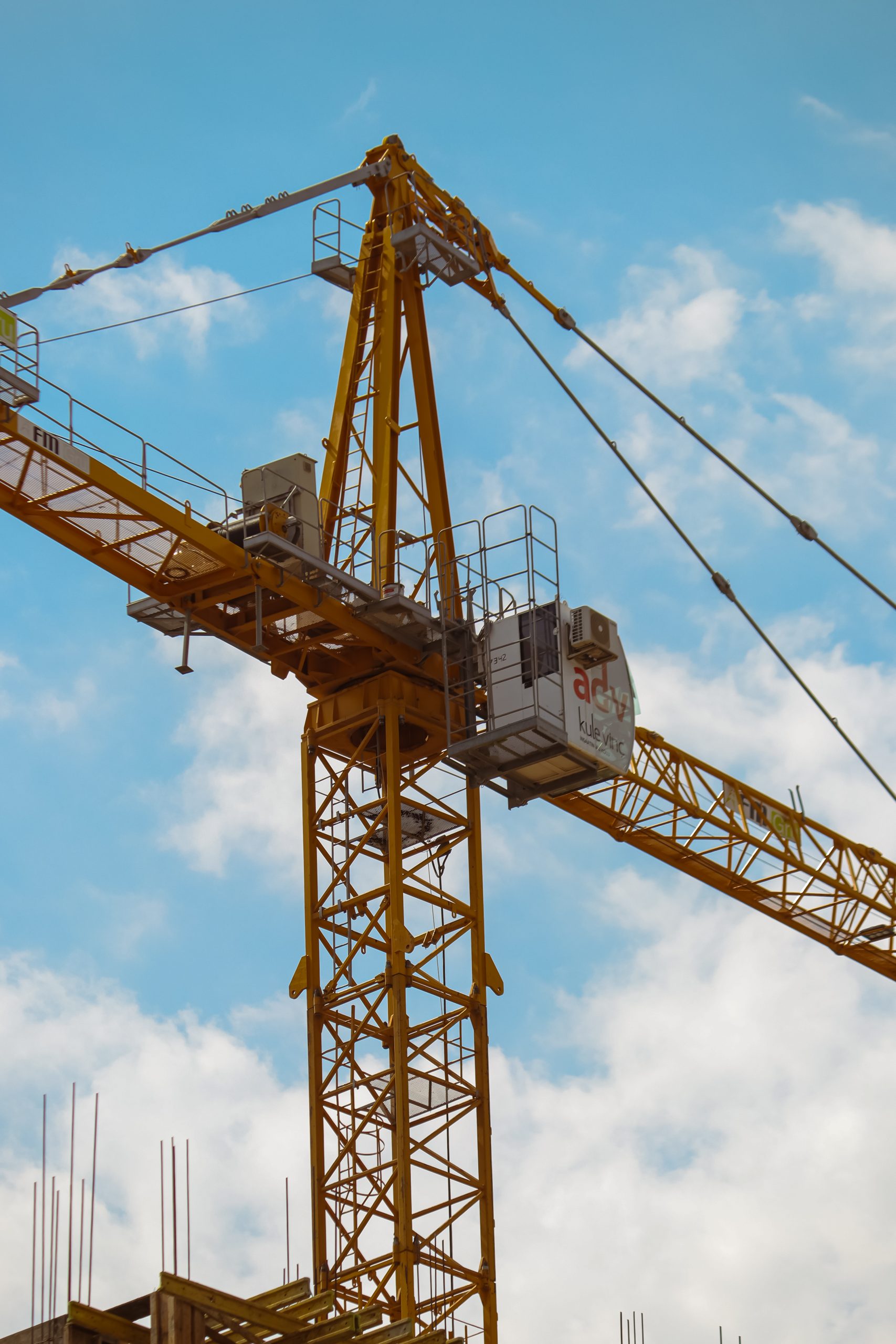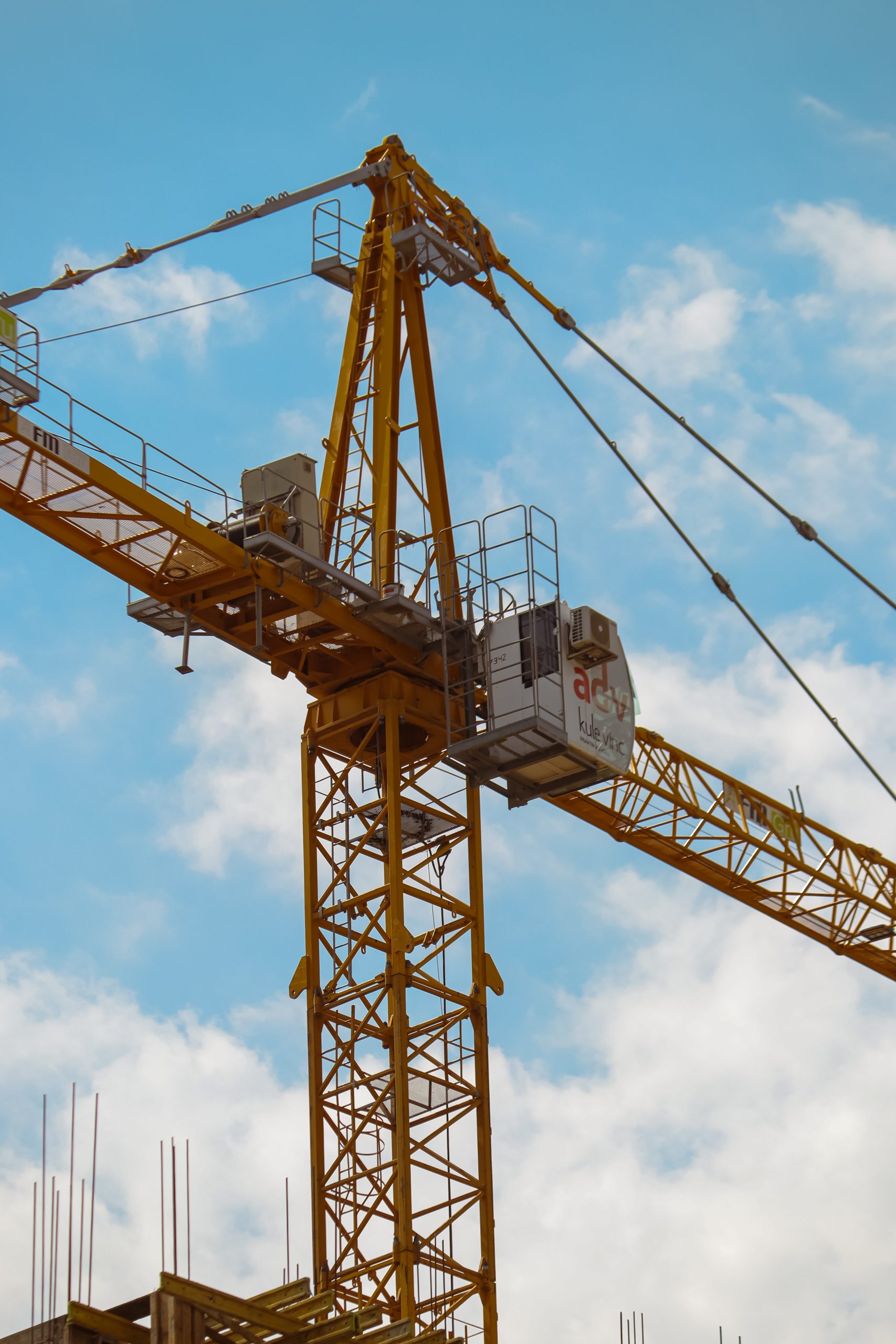If you’ve ever found yourself tangled in the world of government contracts, you know just how complex it can be. That’s where construction law comes in, providing a clear framework to navigate the ins and outs of these intricate agreements. In this article, we’ll explore the essential aspects of construction law in government contracts, addressing common concerns and offering guidance to put your mind at ease. Whether you’re a contractor, a subcontractor, or even a government agency, understanding the legal implications and obligations is crucial. So let’s dive into the world of construction law in government contracts together and empower you to make informed decisions.

Overview of Construction Law in Government Contracts
Construction law in government contracts deals with the legal framework and regulations governing construction projects that are awarded to contractors by government entities. This area of law encompasses various aspects, including contract formation and bidding processes, contractual obligations, payment and performance bonds, project delays, and much more. Understanding the intersection of construction law and government contracts is important for both contractors and government agencies to ensure compliance with legal requirements and effective project execution.
Defining Construction Law
Construction law refers to the body of legal principles and regulations that govern the construction industry. It encompasses a wide range of legal issues, including contract negotiation and formation, compliance with building codes and regulations, labor and employment law requirements, dispute resolution mechanisms, and more. Construction law is crucial in ensuring that construction projects are carried out in a lawful and efficient manner, protecting the rights and interests of all parties involved.
Understanding Government Contracts
Government contracts are agreements entered into by government bodies, such as federal, state, or local agencies, with private contractors for the provision of goods or services. In the context of construction, government contracts involve the hiring of contractors to undertake construction projects on behalf of the government. These contracts are subject to specific regulations and requirements, often outlined in federal acquisition regulations (FAR) for federal contracts or similar regulations at the state and local levels.
Intersection of Construction Law and Government Contracts
The intersection of construction law and government contracts is where the specific legal requirements and regulations applicable to both construction projects and government contracts come together. This intersection is crucial in ensuring that construction projects carried out under government contracts comply with the appropriate laws and regulations. It also provides a framework for addressing legal challenges and disputes that may arise during the course of a construction project.
Key Components of Construction Law in Government Contracts
Contract Formation and Bidding Process
The contract formation and bidding process is a critical component of government contracts in the construction industry. It involves the preparation and submission of bids by contractors, the evaluation and selection of a winning bid by the government agency, and the subsequent contract formation. Construction law governs this process to ensure fairness, transparency, and compliance with applicable laws and regulations, such as competitive bidding requirements.
Contractual Obligations and Scope of Work
Once a contract is formed, both the government agency and the contractor have specific obligations and responsibilities. These obligations are typically outlined in the contract and include details about the scope of work, project timelines, quality standards, and other requirements. Construction law establishes the legal framework for enforcing these contractual obligations and resolving any disputes that may arise.
Payment and Performance Bonds
Government contracts often require contractors to provide payment and performance bonds. Payment bonds provide assurance that subcontractors and suppliers will be paid for their work, while performance bonds ensure that the contractor will fulfill its contractual obligations. Construction law governs the requirements and obligations related to these bonds, providing protection for all parties involved in the construction project.
Change Orders and Modifications
During the course of a construction project, changes or modifications to the original contract may be necessary. Construction law provides guidelines for the process of issuing change orders, including the need for written documentation, approvals, and potential cost adjustments. Clear procedures for handling change orders help to avoid disputes and ensure that any modifications to the contract are carried out in accordance with legal requirements.
Project Delays and Time Extensions
Delays in construction projects are common, and construction law in government contracts defines the rights and obligations of both parties when delays occur. This includes provisions for granting time extensions and addressing potential impacts on project timelines, costs, and contractual obligations. Understanding the legal framework for dealing with project delays is essential to avoid disputes and ensure the successful completion of construction projects.
Legal Considerations in Construction Law and Government Contracts
Compliance with Building Codes and Regulations
Compliance with building codes and regulations is a fundamental legal consideration in construction law and government contracts. Contractors must adhere to local, state, and federal building codes when carrying out construction projects. Failure to comply with these codes can result in project delays, fines, and potential legal liabilities. Understanding and complying with building codes and regulations is essential to ensure the safety and quality of construction projects.
Labor and Employment Law Requirements
Construction projects involve the employment of workers, and contractors must comply with various labor and employment law requirements. This includes adherence to minimum wage laws, employee safety regulations, worker classification requirements, and other employment-related laws. Construction law ensures that contractors fulfill their legal obligations as employers and maintain fair and safe working conditions for their employees.
Environmental and Safety Regulations
Construction projects can have significant impacts on the environment, and contractors must comply with environmental regulations to mitigate these impacts. Construction law establishes guidelines for addressing environmental concerns, such as waste management, pollution prevention, and habitat preservation. Additionally, safety regulations play a crucial role in protecting workers and preventing accidents on construction sites. Compliance with environmental and safety regulations is essential to avoid legal consequences and maintain a responsible approach to construction projects.
Dispute Resolution Mechanisms
Disputes can arise in any construction project, and construction law provides mechanisms for resolving these disputes. Government contracts often include provisions for alternative dispute resolution methods, such as mediation or arbitration, as a means to resolve conflicts outside of the court system. Understanding the available dispute resolution mechanisms and incorporating them into contracts can help parties efficiently and effectively address disputes that may arise during the course of a construction project.

Common Challenges and Disputes in Construction Law and Government Contracts
Quality Control and Defective Work
One common challenge in construction projects is ensuring quality control and addressing defective work. Construction law provides mechanisms for addressing these issues, such as warranties, inspection processes, and dispute resolution provisions. Contractors must have reliable quality control measures in place to prevent defects and address any issues that arise promptly.
Bid Protests and Competitive Bidding Challenges
Competition for government contracts can lead to bid protests and challenges to the bidding process. Contractors may dispute the award of a contract to another bidder, alleging improper evaluation or violations of procurement regulations. Construction law provides procedures for resolving bid protests and ensuring fair and transparent competitive bidding processes.
Payment Disputes and Non-Payment Issues
Payment disputes and non-payment issues often arise in the context of construction projects. Contractors may face payment delays or non-payment for completed work, leading to financial strain. Construction law provides remedies for contractors, such as filing mechanics’ liens or pursuing legal actions to enforce payment obligations.
Termination and Default
Termination and default can occur when one party fails to fulfill its contractual obligations. Construction law establishes the legal rights and consequences associated with termination and default in government contracts. Understanding the circumstances under which termination or default may occur is essential for both contractors and government agencies to protect their rights and interests.
Claims and Change Order Disputes
Disputes can also arise regarding claims for additional compensation or change orders in construction projects. Contractors may seek compensation for extra work performed or costs associated with unforeseen circumstances. Construction law provides mechanisms for resolving these disputes, including negotiation, mediation, or litigation, to address issues related to claims and change orders.
Best Practices for Contractors in Government Contracts
Thorough Contract Review and Negotiation
Contractors should always review and negotiate contracts carefully before entering into government contracts. Thoroughly understanding the terms, conditions, and obligations is essential to ensure that the contract aligns with the contractor’s capabilities, resources, and legal requirements. Seeking legal advice during the contract review and negotiation process can help contractors identify any potential issues and protect their rights.
Maintaining Accurate and Detailed Records
Accurate and detailed record-keeping is crucial in construction projects. Contractors should maintain records of all project-related activities, including contracts, change orders, payments, correspondence, and any other relevant documentation. These records serve as essential evidence in case of disputes or legal challenges. Proper documentation practices help protect the contractor’s rights and provide a reliable basis for resolving issues that may arise during the project.
Proactive Communication and Documentation
Effective communication between contractors and government agencies is essential for successful project execution. Contractors should maintain open lines of communication, providing regular updates, addressing concerns promptly, and documenting all communications in writing. Proactive communication helps prevent misunderstandings, reduces the likelihood of disputes, and fosters a productive working relationship between all parties involved in the project.
Compliance with Contractual and Regulatory Requirements
Contractors must prioritize compliance with contractual and regulatory requirements throughout the duration of a government contract. Adhering to project specifications, quality standards, safety regulations, and other obligations ensures that the contractor fulfills its contractual commitments and avoids potential legal issues. Regular monitoring and assessment of compliance help identify any areas that need improvement or adjustment.
Seeking Legal Advice and Assistance
Construction law and government contracts can be complex, and contractors should seek legal advice and assistance when necessary. Consulting with attorneys experienced in construction law can help contractors navigate legal challenges, understand their rights and obligations, and ensure compliance with relevant laws and regulations. Legal counsel can provide valuable guidance throughout the entire construction project, from contract negotiation to dispute resolution.

Importance of Legal Counsel in Construction Law and Government Contracts
Understanding Complex Legal Frameworks
The legal frameworks governing construction law and government contracts are complex and can be challenging to navigate without legal expertise. Attorneys specializing in construction law possess in-depth knowledge of the applicable laws, regulations, and industry practices. They can help contractors and government agencies understand and interpret legal requirements and ensure compliance throughout the project.
Navigating Government Regulations and Requirements
Government contracts involve compliance with specific regulations and requirements. Attorneys familiar with government contracting can guide contractors through the intricacies of these regulations, facilitating compliance and minimizing the risk of non-compliance. They can also help contractors understand the rights and obligations associated with government contracts and provide advice on best practices to navigate the regulatory landscape effectively.
Mitigating Legal Risks and Liabilities
Construction projects carry inherent legal risks and liabilities. Attorneys specializing in construction law can help contractors identify and mitigate these risks through proactive risk management strategies. By assessing potential legal issues, implementing appropriate safeguards, and assisting with contract negotiations, attorneys can help contractors minimize their exposure to legal liabilities throughout the project.
Enforcing and Protecting Contractual Rights
In the event of disputes or contractual breaches, legal counsel can represent contractors in enforcing and protecting their contractual rights. Attorneys experienced in construction law possess the necessary skills to negotiate, mediate, or litigate on behalf of their clients, seeking fair resolutions and ensuring that the contractor’s rights are upheld. They can advocate for their clients’ interests, protect their legal rights, and pursue remedies when necessary.
Effective Dispute Resolution and Litigation Strategies
Disputes are an unfortunate reality in construction projects. Attorneys specializing in construction law can provide valuable guidance on dispute resolution strategies and develop a litigation strategy if necessary. Their knowledge and experience in construction law enable them to navigate the complexities of dispute resolution processes, negotiate favorable settlements, or, if required, advocate for their clients in court.
Federal Acquisition Regulations and Construction Law
Overview of Federal Acquisition Regulations (FAR)
Federal Acquisition Regulations (FAR) are a set of uniform policies and procedures that govern the acquisition process for federal government contracts. They provide guidelines and requirements for the procurement of goods and services by federal agencies. Contractors involved in federal government contracts must comply with specific FAR provisions and clauses to ensure proper contract execution and compliance with federal regulations.
FAR Provisions and Clauses Pertinent to Construction Contracts
Construction contracts awarded by federal agencies are subject to specific FAR provisions and clauses related to construction projects. These provisions and clauses cover various aspects, such as cost accounting, payment terms, labor requirements, safety compliance, and dispute resolution mechanisms. Understanding and complying with these FAR requirements is essential for contractors involved in federal government construction contracts.
Compliance with FAR Requirements
Government contractors must ensure compliance with FAR requirements to avoid contractual and legal issues. Compliance typically involves adhering to specific procedures and processes, accurately documenting costs, tracking and reporting performance, and maintaining transparency throughout the project. Contractors should familiarize themselves with the relevant FAR provisions and clauses applicable to their specific construction contracts to ensure compliance and prevent potential legal problems.
State and Local Government Contracts: Construction Law Considerations
Differences and Similarities to Federal Government Contracts
State and local government contracts share similarities and differences with federal government contracts. While they all involve agreements between government bodies and contractors for the provision of goods or services, the specific legal requirements can vary. State and local government contracts often have their own procurement rules and regulations, which contractors must comply with. Understanding these differences and similarities is essential for contractors seeking government contracts on the state and local levels.
State-specific Laws and Regulations
State-specific laws and regulations play a significant role in state government contracts. Contractors must familiarize themselves with the laws and regulations specific to the state in which they are operating. These may include licensing requirements, insurance obligations, safety regulations, and specific bidding processes. Compliance with state-specific laws and regulations is crucial for contractors to enter into and successfully execute state government contracts.
Local Procurement Rules and Requirements
Local government contracts are subject to unique procurement rules and requirements established by local municipalities or counties. These rules and requirements may include purchasing thresholds, bidding procedures, vendor qualifications, and other specifications. Contractors interested in local government contracts should research and understand the specific procurement rules and requirements of the respective locality to ensure compliance and successful contract execution.
Emerging Trends and Issues in Construction Law and Government Contracts
Incorporation of Technology and Innovation
The construction industry is experiencing a transformation with the incorporation of technology and innovation. Contractors are utilizing Building Information Modeling (BIM), drones, virtual reality, and other advanced technologies to improve project planning, design, and execution. Construction law in government contracts must adapt to these emerging trends and address legal considerations related to intellectual property, data protection, and potential liabilities associated with the use of technology.
Sustainability and Green Building Initiatives
Sustainability and green building initiatives are gaining prominence in construction projects, including those under government contracts. Contractors are increasingly required to comply with sustainability standards, energy efficiency requirements, and environmentally friendly practices. Construction law in government contracts must reflect these initiatives, providing guidelines and regulations to support the implementation of sustainable construction practices while ensuring compliance with legal requirements.
Public-Private Partnerships
Public-private partnerships (PPPs) have become a popular model for financing and delivering public infrastructure projects. These partnerships involve collaboration between government entities and private contractors to develop, finance, and operate public infrastructure projects. Construction law in government contracts is evolving to accommodate the unique legal considerations and contractual structures associated with PPPs, ensuring effective management and successful execution of these projects.
Cybersecurity and Data Protection
As construction projects become increasingly digitized, cybersecurity and data protection have become critical issues. Contractors involved in government contracts must take measures to protect sensitive project data from cyber threats and ensure compliance with data protection regulations. Construction law must address these emerging concerns by establishing legal frameworks and guidelines for cybersecurity measures, data handling, and privacy protection in government contracts.
Conclusion
Understanding construction law in government contracts is essential for contractors and government agencies involved in construction projects. The legal framework provided by construction law ensures compliance with regulations, protects the rights and interests of all parties, and establishes mechanisms for resolving disputes. By following best practices, seeking legal advice when necessary, and staying informed about emerging trends and issues, contractors can navigate government contracts successfully and execute construction projects with confidence. Securing legal expertise is crucial for contractors to ensure compliance, mitigate risks, and protect their rights throughout the entire construction project. Contact our experienced construction law attorneys today at [phone number] to get the guidance and representation you need for your government contracts.




























